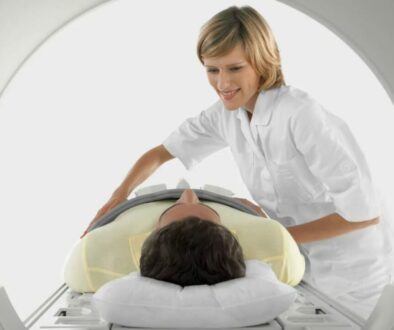Why Would You Need an Orthopedic MRI? 7 Common Reasons
When it comes to diagnosing orthopedic conditions and injuries, medical imaging—such as an orthopedic MRI—plays a crucial role in providing accurate assessments. Magnetic Resonance Imaging (MRI) has become an invaluable tool for orthopedic specialists.
In this blog, we’ll explore seven common reasons why you might need an orthopedic MRI and shed light on its applications in orthopedics.
7 Common Reasons for an Orthopedic MRI
1. Evaluating joint disorders
An MRI can help identify joint abnormalities, such as osteoarthritis, rheumatoid arthritis, and cartilage injuries.
2. Assessing sports injuries
An MRI is frequently employed to diagnose conditions that result from sports injuries. Some of these conditions include:
- Ligament tears (such as ACL or MCL tears)
- Muscle strains
- Tendonitis
- Stress fractures.
3. Detecting spinal conditions
An orthopedic MRI can reveal a variety of spinal conditions and help evaluate whether or not minimally invasive surgery would be the correct course of treatment.
Some of these conditions include:
- Spinal cord compression
- Herniated discs
- Spinal tumors
- Compression fractures
- Spinal deformities
At the Raleigh Bone and Joint Surgery Clinic, we’re experts at minimally invasive spinal surgery which is highly effective at treating the conditions listed above.
4. Diagnosing bone infections
Another application of an orthopedic MRI is that it can detect bone infections, including osteomyelitis, helping guide appropriate treatment.
5. Identifying tumors and masses
An MRI aids in the visualization and characterization of bone tumors, soft tissue masses, and cysts.
6. Assessing nerve-related issues
An MRI can provide detailed images of nerves, assisting in the diagnosis of conditions like pinched nerves and nerve compression syndromes.
7. Pre-surgical planning
Before surgeries, an orthopedic MRI can help surgeons assess the extent of injury or damage, aiding in surgical planning and decision-making.
At The Raleigh Bone and Joint Surgery Clinic, we take a conservative approach to medicine. This means that we will not suggest surgery until all other non-surgical options have been tried.
Why Do Orthopedic Surgeons Use MRI?
As we mentioned earlier, there are several instances in which you would need an MRI. However, we’d like to quickly review how the MRI works and why it’s such a valuable tool.
It offers exceptional clarity, allowing us to visualize bones, joints, ligaments, tendons, and soft tissues with remarkable precision.
Should You Get an MRI Before Seeing an Orthopedic Surgeon?
Whether or not you should get an orthopedic MRI before seeing an orthopedic surgeon depends on your specific situation. In many cases, your primary care physician or general practitioner will initially evaluate your symptoms and conduct a physical examination. They may refer you to one of our orthopedic doctors in Raleigh.
The decision to proceed with an MRI typically rests with the orthopedic surgeon, who will assess the necessity based on your symptoms, physical examination, and medical history.
If you need an MRI, we’re proud to have Wake County’s first and only Open Bore MAGNETOM Verio 3T MRI. What this means for you is greater comfort and a quicker exam, which is a great relief for our clients who may be claustrophobic or uncomfortable in enclosed spaces.
Who Should Not Have an MRI Scan?
While an MRI is a highly effective diagnostic tool, there are certain situations where it might not be recommended. For example:
- Pregnancy: Due to the strong magnetic fields involved, MRI is generally avoided during pregnancy, especially during the first trimester.
- Pacemakers or certain implants: Some medical devices may be affected by the magnetic fields of an MRI machine, so individuals with pacemakers or certain implants may need alternative imaging methods.
- Severe Claustrophobia: MRI machines require the patient to lie still within a confined space. If you suffer from severe claustrophobia, you may find the experience challenging. Open MRI machines—such as the one at The Raleigh Bone and Joint Surgery Clinic –or sedation options can be considered in such cases.
Orthopedic MRIs Are Just One of The Many Services Offered at the Raleigh Bone and Joint Surgery Clinic
If you’re experiencing orthopedic pain or have concerns about a potential musculoskeletal condition, don’t hesitate to schedule an appointment with one of our board-certified orthopedic specialists in Raleigh. We’ll determine if you need an MRI and use the information to tailor a treatment plan for you.
For nearly 50 years, we’ve offered patients the highest quality care through our fellowship-trained, leading orthopedists in Raleigh. Our affiliation with five local hospitals means you have a greater choice about where to get care. In addition, we have convenient, in-house physical therapy to help you on your recovery journey.
To schedule an appointment, please contact us. We’d love the opportunity to be your medical provider.


